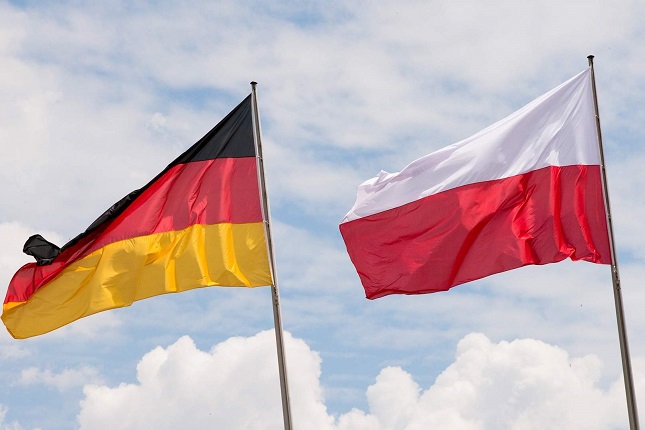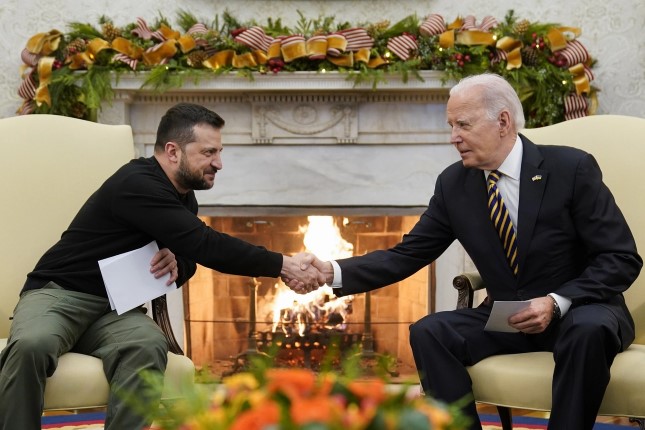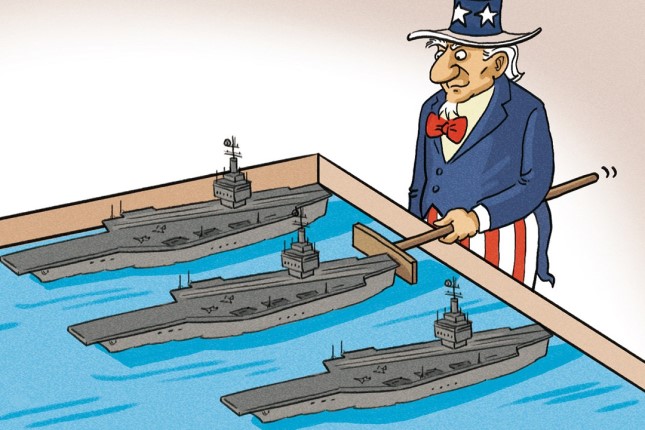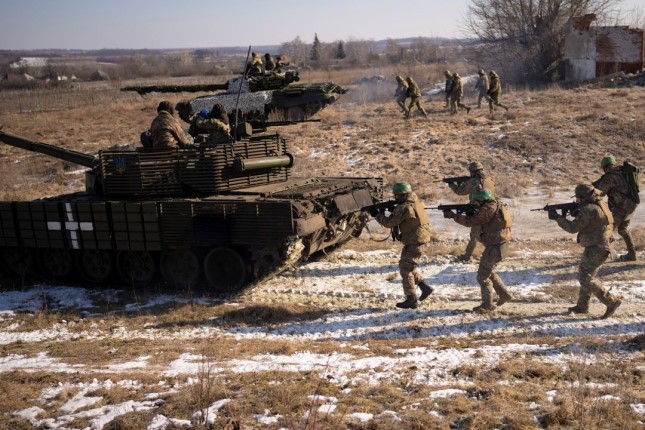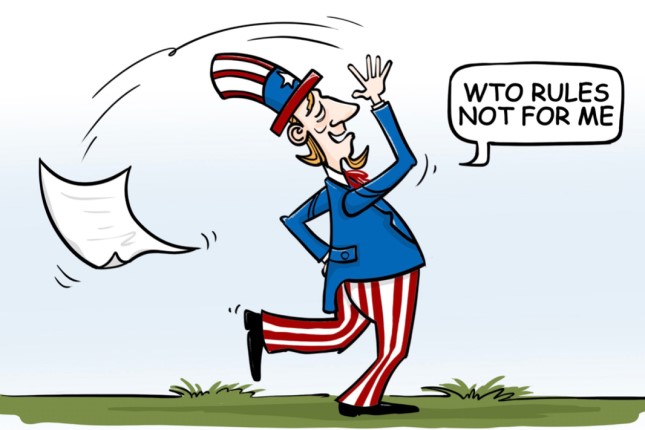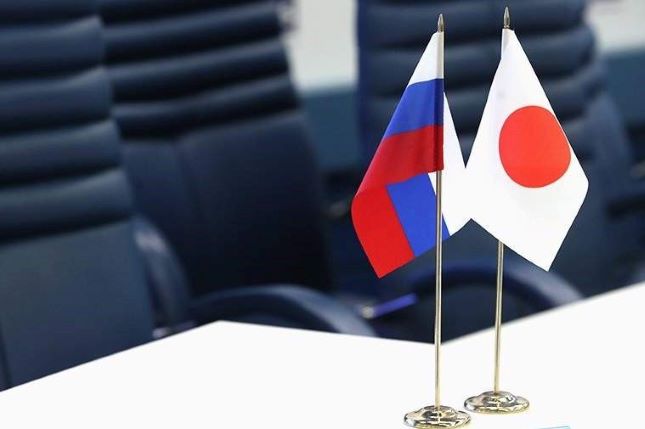The Polish national anthem "Dąbrowski's Mazurka" contains the following lines: "What the foreign force has taken from us/ We shall with saber retrieve". Poland's ruling Law and Justice party is attempting to act upon this promise, albeit in a more peaceful manner. Under its leadership, Warsaw has prepared a note to Berlin in which it is inviting Germany to start talks over war reparations. The amount in question is USD 1.3 trillion demanded from Germany for the damages it inflicted upon Poland during World War II. According to a special report compiled by a group consisting of dozens of experts, between 1939 and 1945, some 6 million Polish citizens, including 3 million Jews, perished, and the country lost much of its industry and infrastructure, as well as its cultural heritage treasures.
During Poland's occupation by Germany, German settlers in Poland took ownership of over 200,000 commercial and industrial enterprises, as well as plots of fertile land, houses, and other property that had belonged to Poles. At the same time, German companies such as the Hermann Goring Works acquired possession of coal mines, ironworks, and other industrial facilities. Another German company, Farbenindustrie, took ownership of the dyestuff producers Boruta, Volia, and Vinnytsia. Dresdenbank took over the Commercial Bank in Krakow, Oriental Bank in Poznan, and local branches of the Austrian Länderbank. Overall, as a result of World War II, Poland lost 20% of all its factories and plants. The country's financial sector was all but ruined.
Poland's Prime Minister Mateusz Morawiecki emphasised that the country's government is by no means motivated by greed but is instead guided by noble pursuit of justice. This quest for justice is symbolically consonant with the name of the ruling party itself. The crux of the matter is that without the USD 1.3 trillion in war reparations, peace between Poland and Germany would be incomplete, which is bound to result in a nagging sense of something left undone.
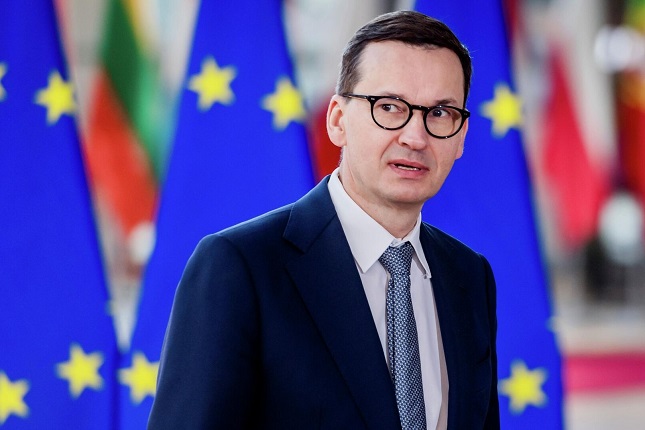
Polish Prime Minister Mateusz Morawiecki. Photo: AP Photo / Geert Vanden Wijngaert.
Jaroslaw Kaczynski, the leader of the ruling Law and Justice party, made it clear that the estimate of USD 1.3 trillion was, in fact, quite conservative; it could well turn out to be more than that. Therefore, Germany should actually be grateful for that and hurry up paying because, as recently as 2019, the estimated amount of war reparations owed to Poland was as little as USD 850 billion. Despite the fact that the interest accrued on that earlier assessed amount over the last three years represents a considerable amount of money, Germany would still be able to afford paying the new amount, considering that Germany's GDP stands at USD 3.8 trillion. But a couple more years of stalling could mean that Berlin will find itself forever in an irredeemable debt to Warsaw.
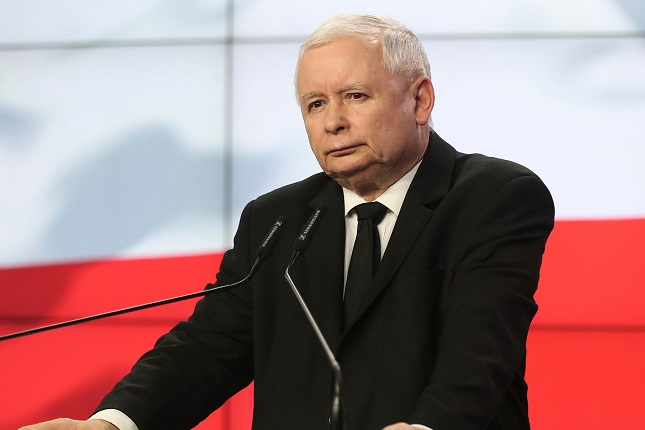
Jarosław Kaczynski. Photo: Czarek Sokolowski / AP.
Poland's ruling party is confident that the Germans will ultimately cough up the war reparations. Germany, by contrast, has made it very clear that it certainly does not intend to. Germany's Foreign Ministry pointed out that all of the country's war debts had been paid off back in the early 1950s. Back then, Poland officially waived all its claims against Germany. According to various estimates, it ended up getting from 8% to 15% of the Soviet share of war reparations. The USSR removed from Germany some USD 15.8 billion worth of equipment and property, an amount that would be roughly equivalent to about USD 400 billion at the current exchange rate. Moreover, in the early 1990s, the question of any compensations owed by Germany was once and for all settled by the "Two Plus Four Treaty" between East Germany and West Germany, on the one hand, and France, the UK, the US, and the USSR, on the other. Warsaw raised no objections to that at the time, either.
So why would Poland want to revive the issue of war reparations and start a dispute with its key trading partner and an EU and NATO ally, and do it now, amid the events in Ukraine and the ongoing economic crisis? It is clear that this dispute has no quick solution but is capable of complicating further the already strained relations between Warsaw and Berlin.
Donald Tusk, the leader of Civic Platform, a Polish opposition party, may have provided one plausible explanation. He is convinced this is just one of the episodes of political infighting within the country. Even if it fails to yield any result, this audacious attempt to extract such a mind-boggling amount of money from Germany will be sure to please Polish voters. A United Surveys poll has shown that more than 47% of Poles support the ruling party's initiative.
It is also likely that the demand for war reparations may be additionally intended to impress an international audience, too. Such a brazen attack against Germany, the informal leader of the EU, could serve to reinforce Poland's claim to a leading position in Eastern Europe. It should also please its allies in the US and the UK who are believed to be systematically fomenting strife within the EU.
Poland could be adding fuel to the fire out of its petty vindictiveness, too. Warsaw has long held a bitter grudge against Berlin for its persistent support for freezing European aid to Poland over the latter's judicial reforms that have resulted in restricting the freedoms of Polish judges. Just a short while ago, German Chancellor Olaf Scholz once again reaffirmed this stance. Besides, Poland resents the fact that Germany is not helping Ukraine enough in its war against Russia and even keeps buying gas from Moscow. In addition, Warsaw was upset when it didn't get Germany's Leopard tanks and Marder infantry fighting vehicles it had been promised in exchange for handing over old Soviet T-72 tanks to Kyiv.

Spiegel announced the refusal of Germany to supply tanks to Ukraine due to fears of seeing them in Russia. German military tank. Photo: AP Photo / Michael Sohn.
It is worth mentioning, though, that Germany, too, has voters who are none too happy with the boorish behaviour of the Polish authorities. In the past, ordinary Germans could dismiss it all as a good joke. But this is hardly the case now, in the face of the current energy crisis, when money is scarce for Germany's own needs, too. This may ultimately force German authorities to act resolutely in the interests of its own citizens and put Poland in its place through trade restrictions, for example. The volume of trade between Poland and Germany amounts to USD 180 billion. Some may argue that a war of sanctions between members of the European Union would be unreasonable in the current climate. But this would not be the first time when economic benefits are sacrificed for the sake of political expediency.
At this point, it would be worth recalling the words of the respected Polish historian Andrzej Galicki. In his last interview, he said that one of the main features of the Polish identity is adventurism that constantly leads the country to regrettable results. Furthermore, the professor noted, instead of learning from their mistakes, the Poles persist in repeating them. Perhaps Warsaw would be wiser to modulate its zeal and try to find common ground with its neighbours.
